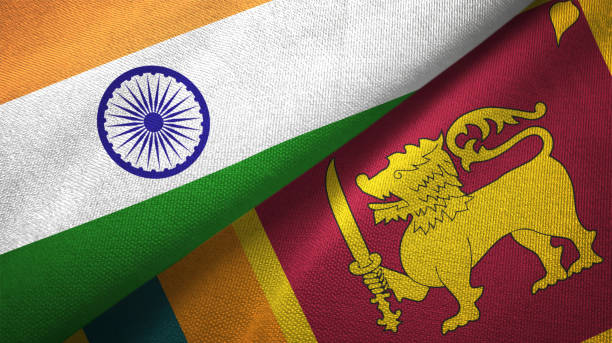
In the intricate fabric of South Asian geopolitics, the Katchatheevu Island dispute between India and Sri Lanka stands as a stubborn knot, challenging the principles of cooperative engagement and regional stability, especially amidst the lead-up to India’s impending general elections, where Prime Minister Narendra Modi’s rekindling of the controversy has ignited substantial discourse and speculation. This strategic maneuver, evidently aimed at courting South Indian voters, resurrects a longstanding dispute between India and Sri Lanka, transcending mere domestic politics. The Katchatheevu Island, nestled in the Palk Strait, has remained a contentious issue since India’s controversial cession of the territory to Sri Lanka in 1974, eliciting discontent and protests among Indian fishermen and political circles. Modi’s recent condemnation of the Congress Party’s acquiescence to Sri Lanka’s sovereignty claims over the island, coupled with External Affairs Minister S. Jaishankar’s assertions regarding the violation of Indian fishermen’s rights, has sparked a significant political firestorm, underscoring the enduring relevance and complexity of this unresolved territorial imbroglio.
The Katchatheevu Island imbroglio carries weighty implications for India’s neighborhood-first policy and its ties with Sri Lanka. This policy underscores the imperative of fostering robust relations with neighboring states, grounded in mutual respect, cooperation, and shared interests. Nevertheless, the protracted dispute over Katchatheevu has strained the bond between India and Sri Lanka, undermining the very essence of this policy and posing formidable challenges to regional harmony. Firstly, the unresolved issue has exacerbated tensions and sowed seeds of distrust between the two nations, impeding efforts toward closer collaboration across various domains, including trade, security, and regional development. The lingering sense of resentment among Indian fishermen and political stakeholders further exacerbates the strain on bilateral ties. Moreover, the Katchatheevu controversy has opened avenues for external actors to exploit the discord between India and Sri Lanka to advance their strategic agendas. This poses a dual threat by not only eroding India’s regional influence but also undermining its stature as a pivotal player in shaping South Asian dynamics.
To navigate these complexities and forge a path towards resolution, policymakers from both India and Sri Lanka must embrace innovative and inclusive solutions such as-
Joint Sovereignty: Considering the sensitivities surrounding Katchatheevu, India and Sri Lanka could explore the possibility of establishing joint sovereignty over the island. This arrangement would entail shared control and management, safeguarding the interests of both nations while fostering a spirit of cooperation.
Maritime Boundary Agreement: A clear and mutually agreed-upon maritime boundary in the vicinity of Katchatheevu could mitigate tensions and prevent maritime disputes. Negotiating such an agreement would require diplomatic finesse and compromise, but the benefits of enhanced stability and security would be invaluable.
Fisheries Cooperation: Recognizing the vital role of fisheries in the livelihoods of communities on both sides of the Palk Strait, India and Sri Lanka could deepen cooperation on fisheries management and conservation. Joint patrols, sustainable fishing practices, and dialogue between fishermen’s associations can foster trust and minimize conflicts at sea.
Cultural Exchange: Strengthening people-to-people ties through cultural exchange programs, educational initiatives, and heritage projects can bridge the gap between Indian and Sri Lankan societies. By fostering mutual understanding and appreciation, these endeavors lay the foundation for enduring friendship and cooperation.
Regional Integration: Beyond bilateral relations, India and Sri Lanka can contribute to broader regional integration efforts within South Asia. By championing initiatives for economic cooperation, infrastructure development, and environmental sustainability, both countries can harness their collective potential for the greater good of the region.
One could argue that Asia today is far more diverse and faces increasingly complex geopolitical challenges, making the idea of Asian solidarity seem like a lofty aspiration. Nonetheless, it’s worth highlighting that Jaishankar, a staunch proponent of regional cohesion for a multipolar Asia, has consistently advocated for “Asian solidarity.” With the burgeoning prominence of Asian economies, there exists the potential for a new era of Asian integration, with India positioned as a key driver of this process.
Reopening the dispute with Sri Lanka at a time when New Delhi contends with challenges from politically anti-India regimes in its immediate neighborhood is not a prudent course of action. Despite having garnered political goodwill by effectively assisting Colombo during its financial crisis, careless remarks run the risk of diminishing India’s regional influence. New Delhi’s strategic neighborhood vaccine diplomacy has injected positive momentum into its diplomatic efforts in the region, a momentum that must be sustained. While tensions between New Delhi and Colombo stemming from these remarks are unlikely to manifest in the short term, the persistence of challenges in the neighborhood could potentially divert India’s focus from its broader foreign policy ambitions, particularly in establishing itself as the “Vishwa Guru” on the world stage.
By The European Institute for International Relations















